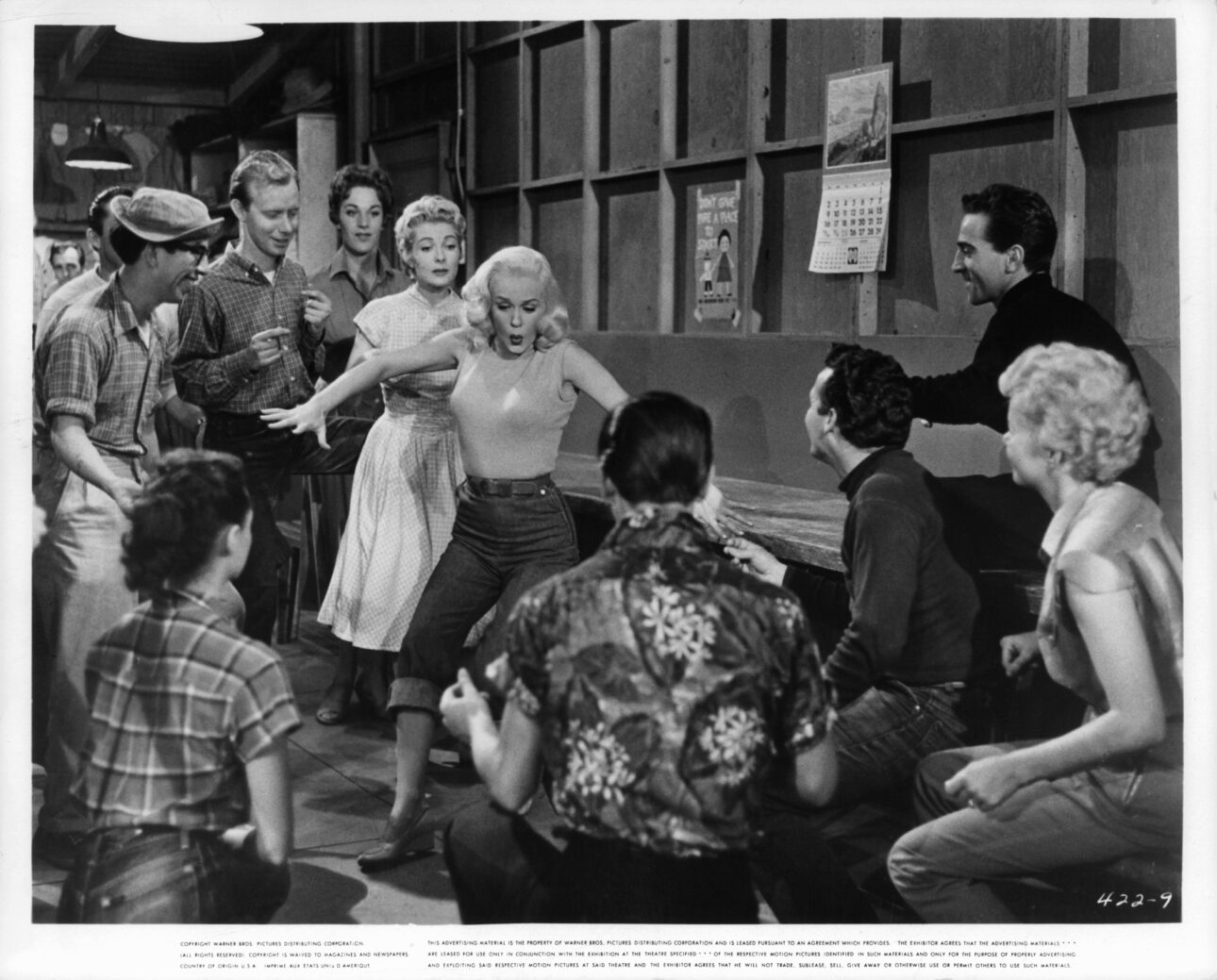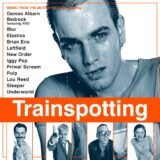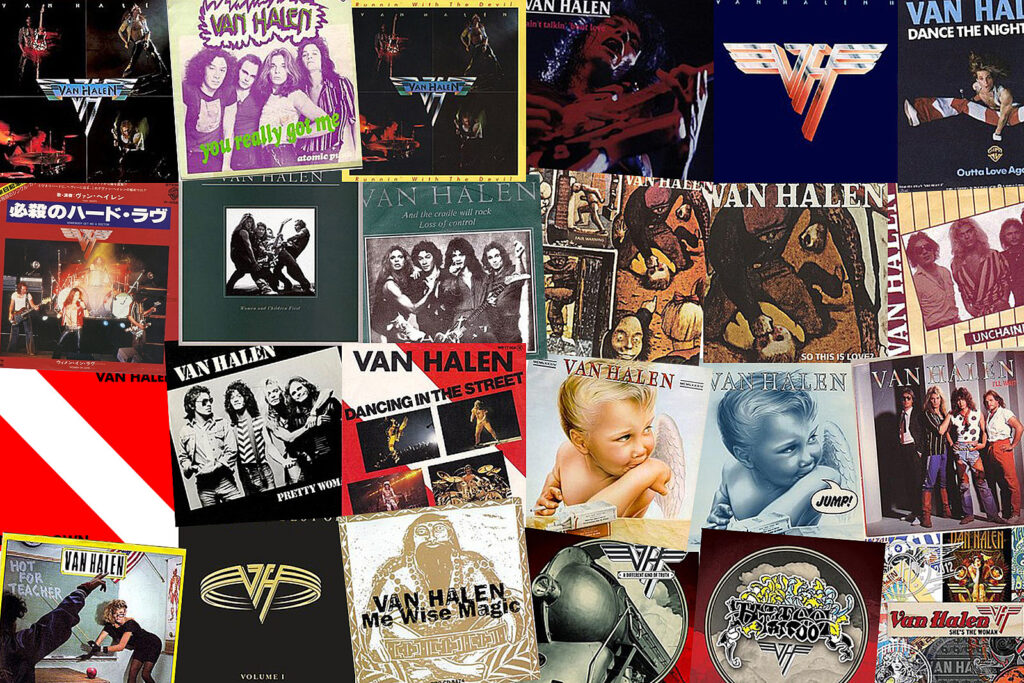Because No One Asked: Here Are 10 Truly Bad Soundtracks

In 1957, Warner Brothers released a low-budget teensploitation flick called Untamed Youth, which has the distinction of being the first movie to feature a woman singing rock and roll–at least according to its star. The film’s “untamed youth” break into song frequently and dance wildly around the barracks of the prison farm, with Mamie Van Doren and Eddie Cochran taking lead on songs penned by exotica legend Les Baxter. It’s an infamous turkey of a film, even riffed on the first season of Mystery Science Theater 3000, and if it had a soundtrack, it would surely be considered among the worst of all time. Baxter was obviously slumming in the teen market, as his songs are all wonky and askew—a square’s take on hip tunes.
But it’s not entirely his fault. Singing wasn’t among Van Doren’s primary or even secondary talents. She never really gets hold of “Salamander,” and the less said about her stab at calypso—a very violent stab—the better. What she lacks in pitch and nuance and charisma, however, she makes up for with the sheer brute force of her delivery: Nothing’s gonna stop her from putting these songs over. She was, naturally, the film’s star and the only artist credited to the seven-inch single from the film. It’s as close as Untamed Youth ever got to a soundtrack.

The film predates the soundtrack era, which used the Broadway cast recording template to market teener flicks with tie-in albums. Pop stars started stepping in front of the camera just to chart more hits, but as the Beatles made pop art and auteurs started tinkering with Hollywood formulas, the possibilities for soundtracks expanded exponentially. A good soundtrack can take any form: a standalone score (Duke Ellington’s Anatomy of a Murder) or a collection of new songs (Prince’s Purple Rain) or a collection of old songs in a new context (Pulp Fiction) or some hybrid of pop and score (Rushmore). While the digital era has made the form much less bankable, we still get blockbusters like Guardians of the Galaxy and Barbie.
Similarly, a bad soundtrack can take any form. Some are failed experiments, others souvenirs from vanity projects. It might be an artifact of a short-lived pop trend that sounds baffling beyond its moment, as with the symphony-and-synths Ladyhawke (although, call me crazy, that one’s actually kinda fun). It could be one of those old-school insults to disposable income, such as Benny & Joon or Batman Returns, which demanded $15+ for one pop song and 50 minutes of blah score.
And then there are those soundtracks to cult films, whose badness is their entire appeal. The Apple, a disco musical from 1980 that’s less Xanadu and more Xanadon’t, is beautifully corny, and who would want it any other way. And the score from Manos: Hands of Fate is deeply weird, but like the film itself, that soundtrack casts a strange and utterly singular spell. After a while, bad becomes more a genre than a criticism.
Below are 10 truly bad soundtracks. Some rise to the level of so bad they’re good, but most are just, well, bad.
Easy Come, Easy Go (1967)
Of course we’re starting with Elvis. He may be the first true pioneer of the bad soundtrack. The same year the Doors and the Velvet Underground released their debut albums, Presley gave the world Easy Come, Easy Go, his umpteenth teen flick, in which he played a deep-sea diver and nightclub singer who… well, there’s no real plot to sum up. The film and its soundtrack (originally a six-song EP, later expanded on a reissue with Speedway) represent the twin nadirs of his recording and acting careers. The title track is the best song here, because it’s merely forgettable. “The Love Machine” is awkward and nonsensical, but “Yoga Is As Yoga Does” is grandiose in its stupidity. It’s special. One of far too many novelty hits from this phase of Elvis’s career, it’s a sad stab at counterculture commentary—“How can I even move, twisted like a pretzel?”—with Elvis sounding hoarse, very likely high, and barely committed to any single note. You can hear the moment he just gives up. The song was later included on the infamous ‘80s bootleg Elvis’ Greatest Shit!
(Bonus trivia: Closer “I’ll Take Love” was co-written by Dolores Fuller, best known for appearing in several of Ed Wood’s films.)
Lost Horizon (1973)
More than any other film on this list, Lost Horizon had the potential to be a classic. The film, a remake of the 1937 adaptation of the 1933 novel, was a prestige pic directed by the respectable Charles Jarrott and starring Peter Finch, Michael York, George Kennedy, John Gielgud, and Olivia Hussey. The music was written by Burt Bacharach and Hal David, who were removed from their natural habitat—the 1960s—but were still producing hits. From the opening credits sequence you know something’s off: “There’s a lost horizon waiting to be found,” Shawn Phillips sings on the opening track, as though they had to cram the title in there somewhere. With none of the nuance and very little of the melancholy that defined the duo’s biggest hits, songs like “Living Together, Growing Together” and “The World Is a Circle” reduce a complex story of colonialism down to its most basic tropes. “Different people look at life from different points of view,” two characters actually sing. Why would anyone want to stay in a place with so many bad songs in the air? The film was a boondoggle, losing millions. The soundtrack was moderately successful, with Herb Alpert, Marvin Gaye, and others covering a few of its songs. But the project brought Bacharach and David’s long collaboration to an acrimonious end.














Responses